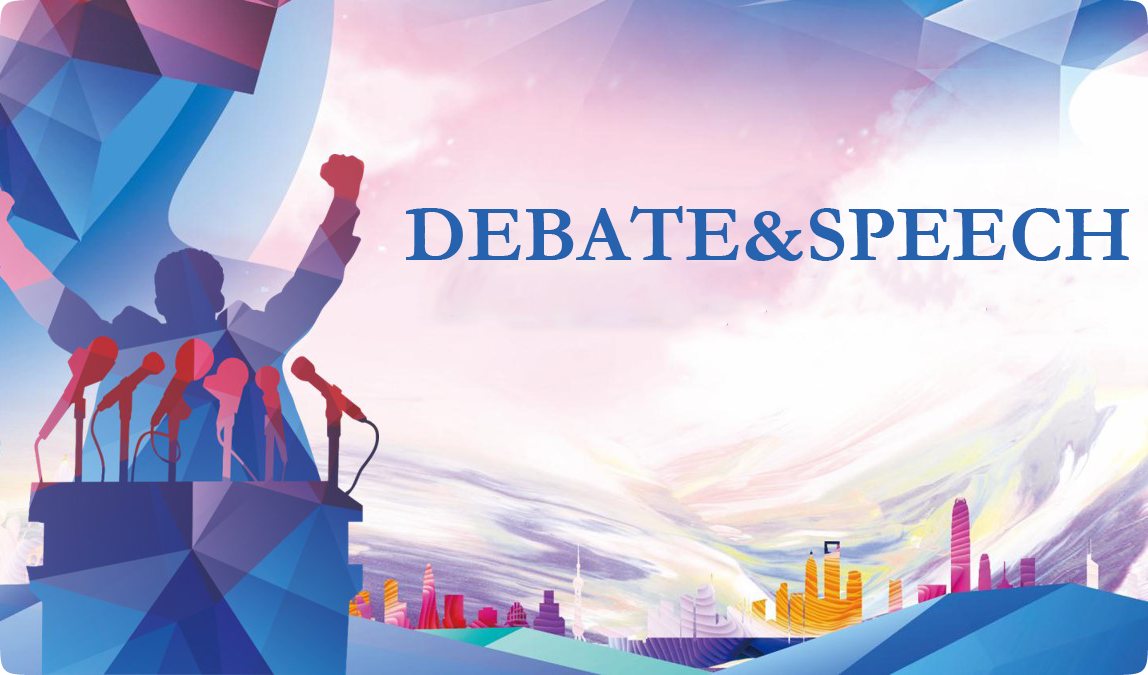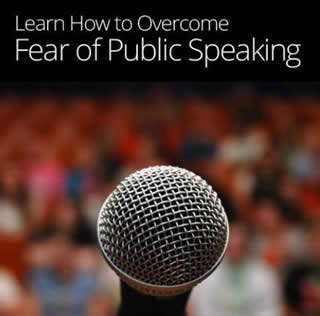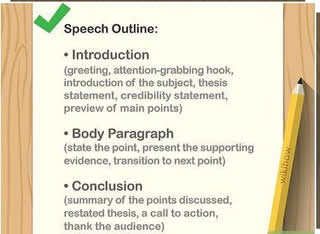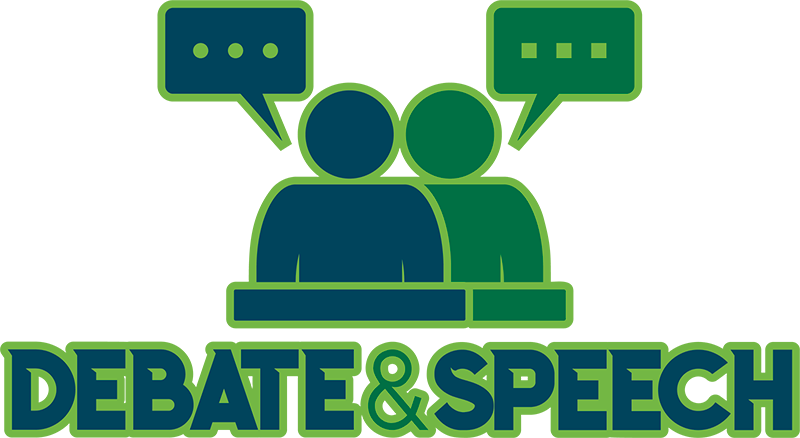| Name | ||
| Age | ||
| School | ||
| Grade | ||
| Phone | ||
| Photo | ||





We organize adjudicators and resources to provide everyone with an opportunity to online speeches and debates. These events will expose students to a range of debates about a range of topics that are important in the modern world. It will widen their knowledge base considerably and thus improve their abilities in a range of their other subjects at school.
Being a confident speaker is vital for both school and a working career – Our events develop these skills, and through the tournament, speakers should be able to improve their spoken English a lot. Through the competition, speakers will receive guidance and feedback on their speech and debating skills and will thus be able to improve as speakers and debaters. This should help their logic and reasoning skills in their subjects, while also ensuring that they are strong debaters should they decide to pursue the activity at school.


This feedback and guidance will come from a top CA,AU,US,UK,NZ debating adjudicator, thus ensuring that it is valuable and of a very high quality. Speakers will have opportunities to debate against a wide variety of speakers, which should expose them to strong skillsets they will be able to learn from and a wide variety of opinions
| tournament | format | date/time | topic | zoom id | aff or neg | result |
|---|
| team name | team leader | member 1 | member 2 | operation |
|---|
| team name | team leader | member 1 | member 2 | operation |
|---|
| team name | team leader | member 1 | member 2 | operation |
|---|
The contest is divided into a debate contest and a speech contest.
1、Debates are in the NPDA Parliamentary debate format of 3 vs 3, with points of information.
- 3 speakers on each team
- Each speaker has a 4 or 6 minutes (depending the level of matches) substantive speech
- Either the first or second speaker of each team does a “Leaders Reply” speech at the end of the debate – this is a summary of the debate and is not allowed to add any extra content. These speeches are three minutes long.
- During substantive speeches, between the 1 and 5 minute marks of a speakers speech, speakers from the opposite team are allowed to ask questions called “points of information”. The speaker speaking has the right to accept or decline answering these questions
Motions and sides will be announced via email on the Sunday evening prior to the new week starting. Some teams will have more time to prepare than others as a result, but the end outcome is that teams will be taking each other on with an even amount of time to prepare.
Dates and times of debates will also be announced after the draw completed as well.
Following conclusion of the debate, speakers will receive feedback from the adjudicator, and will also receive a feedback form at the end of the week detailing their performance and areas of strengths and weaknesses.
Tournaments will have age brackets to ensure that skill levels match and that motions are age appropriate for debaters. This should ensure an even playing field for people in the tournament.
2、Speeches must be original and written by the speaker. There is to be no offensive language or material, lest the speaker will be disqualified.
2.1 The time limit is 4 minutes for Juniors and 6 minutes for Seniors.
2.2 Ancillary material, such as visual aids, is allowed and encouraged. They are not, however, to substitute for effective public speaking, and any speech that relies on visual aids over content will be marked down.
2.3 Timing begins when the speaker begins speaking. Speakers must speak to within 30 seconds of the allocated time or be penalised. There will be a bell rung 30 seconds before time is up and again at the end of time allocation.
2.4 Speeches do not need to be memorised but notes may be used if unobtrusive. Dependence on notes will be marked down.
Competition rules:
The platform hosts both debate and speech competitions. This document will detail overall rules for the platform, as well as specific rules for the debate and speech competitions.
I. General rules:
A. The competition is hosted on the Zoom platform. After registering, competitors will receive an email that will confirm the competition time, zoom meeting number, and the competition topics. Competitors must ensure that they check their emails regularly so that they are aware of this information as soon as they receive it.
B. Competitors must make sure that they have installed Zoom prior to their competition, and must also do audio and visual tests beforehand to ensure that there will be no technical difficulties. Competitors must also ensure that their internet connection is strong enough to be able to participate in the call without any issues.
C. Competitor sign in time: The competitor must enter the Zoom meeting ten minutes in advance. If the competitor is more than 15 minutes late for their call, they will automatically lose by default
D. During all competitions, competitors should keep their cameras and voice devices turned on, and should wear headsets to avoid delays in speaking proceedings, or any adverse impacts to voice quality.
E. All competitors should wear either formal attire or their school uniform (as much as possible). The speaker can choose to shoot half-length (above the abdomen) or the whole body. The competitor's camera must be clear and make it easy to see the contestant.
F. Unfortunately no viewers are permitted for speech or debate competitions - only the competitors and the judges are permitted to be on the Zoom calls for the competitions.
G. The adjudicator's ruling is final and all competitors must respect this. Once a judgement has been made, it cannot be changed.
H. The results of the competition and the adjudicators report will be available to view shortly after the conclusion of the competition.
II. Technical details:
A. For the debate competition:
1. speakers must set their name in the following format
a) “team name + player name + speak1/2/3 + positive and negative code A/N”
2. For example, if Doug was speaking on the tiger team at 3rd speaker and was negating, his name should appear as follows
a) Tiger-Doug-3-N
3. Once all competitors have entered the waiting room, the competition administrator will confirm the identity of all the competitors and then bring them into the actual competition room.
4. Once in the competition room, the adjudicator will also confirm who is speaking where, and which speakers will be delivering the leaders replies
B. For the speech competition:
1. Speakers must set their name in the following format
a) Name + serial number
2. For example, if Doug had the serial number 4357, his name should appear as follows
a) Doug 4357
3. Once competitors are in the competition room, they must type their speech topics into the chat on the call
4. A timer will be operated by a referee and will be displayed on the screen
5. When speaking, make sure to speak into your microphone clearly and have your video on. Your face should be clear and easy to see. Once you are done speaking, keep your camera on but mute your microphone.
III. Debate competition:
A. Debates are in the NPDA parliamentary debate format of 3 v 3, with points of information allowed.
B. 3 speakers on each team
C. Each speaker has either 4 or 6 minutes for their speech - depending on the level of competition that they are participating in
D. Speakers are allowed to research prior to the debate, but are not allowed to use their device (unless for timing) during the debate, and broadly are encouraged to focus on the skills of logic and reason, rather than just relying on large amounts of research
E. Either the first or second speaker of each team does a “Leaders Reply” speech at the end of the debate – this is a summary of the debate and is not allowed to add any extra content. These speeches are two or three minutes long.
F. After the first minute and before the last minute of a speaker's speech, speakers from the opposite team are allowed to ask questions called “points of information”. Speakers must ask permission by standing and saying “on that point”, and the speaker presenting has the right to either accept or decline the point of information.
G. Motions and sides will be announced via email one day before your scheduled match start time. As a result, some teams may have more time to prepare, but this is the most even way possible to run the competition. Additionally, debates are a contest of logic and reason, not researched statistics - as a result, the best team isn’t often the team that has prepared the most content.
H. Once the draw has been generated following the completion of registrations, dates and times of debates will be advised to students. Students may request a change of debate time, but this must be accepted by the other team in order for the change to be made. If the other team declines, then the team that requested the change must lose the debate by default.
I. A request to change the date or time of the debate must be submitted at least one day in advance of the debate, and once a change has been made to the time or date, no further changes can be made.
J. Subsequent rounds will be scheduled for dates and times that are in accordance with the outlined terms of that individual debate tournament (advised during the tournament registration process).
K. Following the conclusion of the debate, speakers will receive feedback from the adjudicator, and will also receive a feedback form at the end of the week detailing their performance and areas of strengths and weaknesses
L. Tournaments will have age brackets to ensure that skill levels match and that motions are age appropriate for debaters. This should ensure an even playing field for students in the tournament.
M. Any decisions by both DASTonline and the adjudicator in regard to the competition or individual debates are final.
IV. Speech competition:
A. A topic for speeches will be set at the registration stage of a tournament. Once the topic is released, speakers will have a week to prepare a speech before they must deliver them to the adjudicator.
B. Speeches must be original and written by the speaker who will deliver them
C. There is to be no offensive language or material, or else the speaker will be disqualified
D. The time limit for speeches is four minutes for juniors and six minutes for seniors
E. Ancillary material, such as visual aids, is allowed and encouraged. They are not, however, to substitute for effective public speaking and any speech that relies on visual aids over content will be marked down.
F. Timing begins when the speaker begins speaking. Speakers must speak within 30 seconds of the allocated time or be penalised. There will be a bell rung 30 seconds before time is up and again at the end of time allocation.
G. Speeches do not need to be memorised but notes may be used if unobtrusive. Dependence on notes will be marked down.
H. Following the conclusion of their speech, speakers will receive feedback from the adjudicator, and will also receive a feedback form at the end of the week detailing their performance and areas of strengths and weaknesses
I. Any decisions by both DASTonline and the adjudicator in regard to the competition or individual Speeches are final.
- The speech contest is based on individual participants, no team is required.
- Debate competitions are based on teams. Each team has and can only have 3 players, and any member can start a team. The starter member automatically becomes the captain of the team. After the team name is created, you can send out invitations by looking up the email addresses of other registered users. The invited user can become a member of the team after confirming to join. When forming a team, try to meet the same grade as you, or one grade lower or one grade higher. (If you are an eighth grade student, you can form a team with students in the seventh, eighth, and ninth grades.) Other members can also apply to join a team by looking up the team name. If the captain passes the application, the joining is successful.
- The naming rule of the team name: English letter + number combination no more than 8 characters. Any team name containing vulgar and uncivilized words will be deleted.
- If the initiated team fails to form a team within one month, the administrator will delete the team and the team name will be released. If a player wants to disband the current team, they can send an email to info@dastonline.com, the team will be disbanded in the background and the team name will be released.
